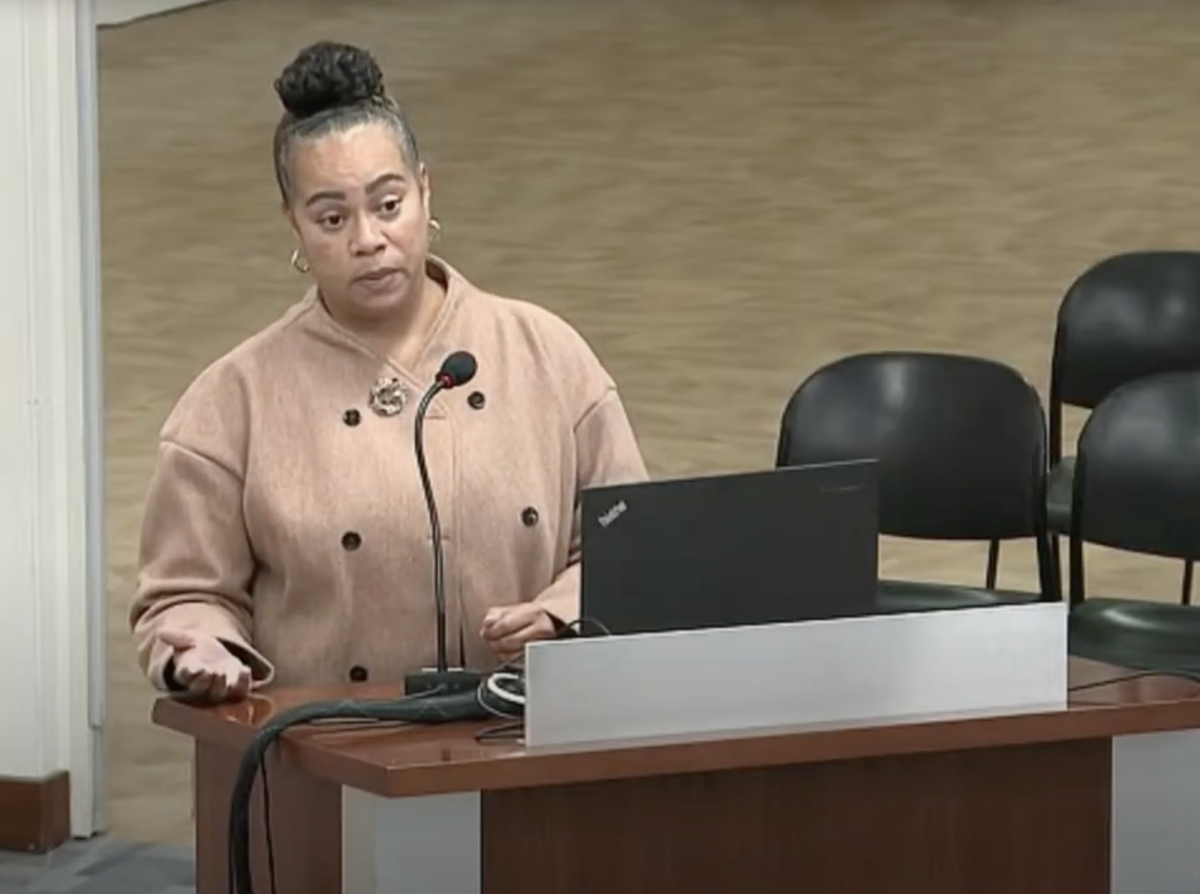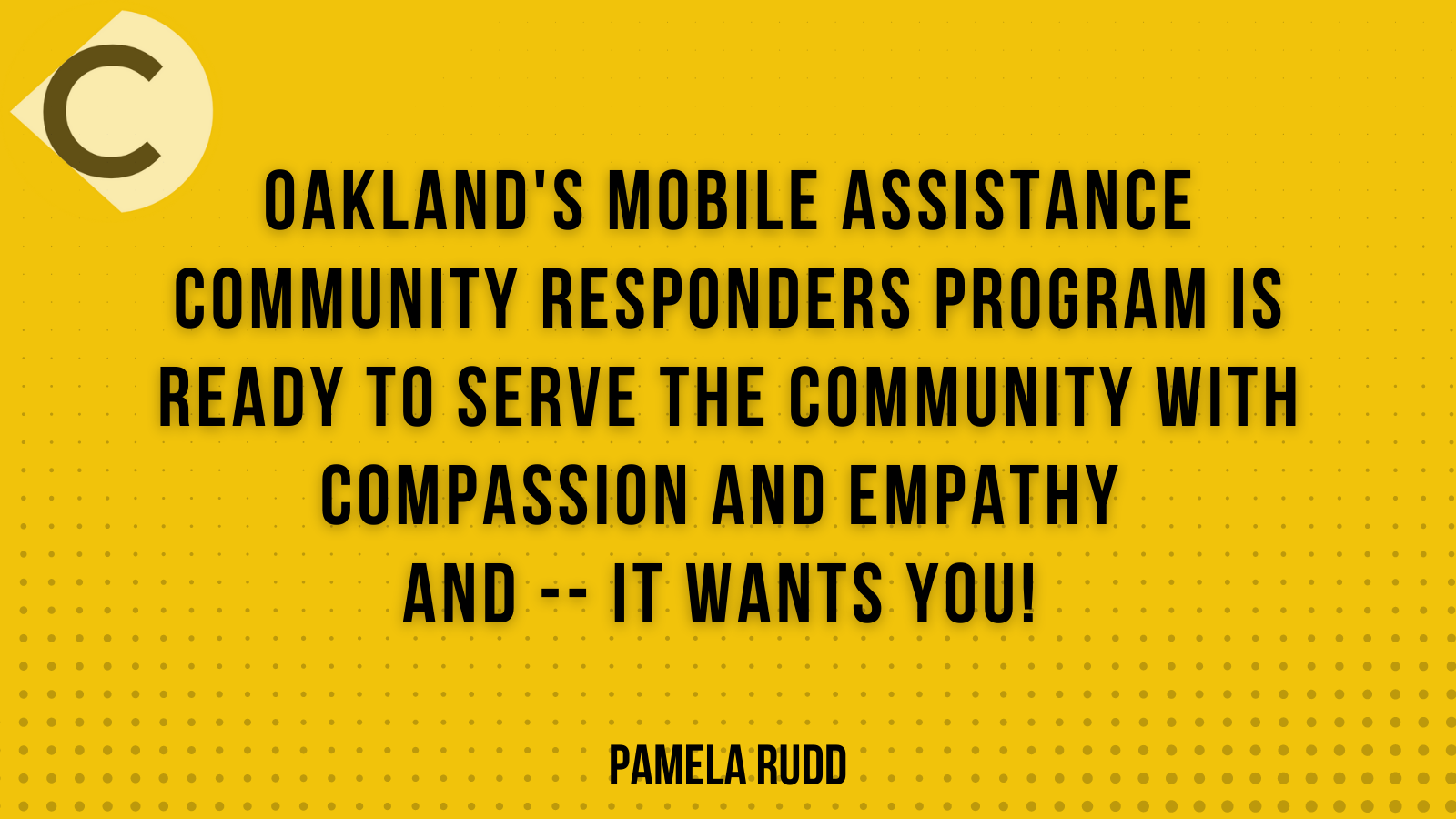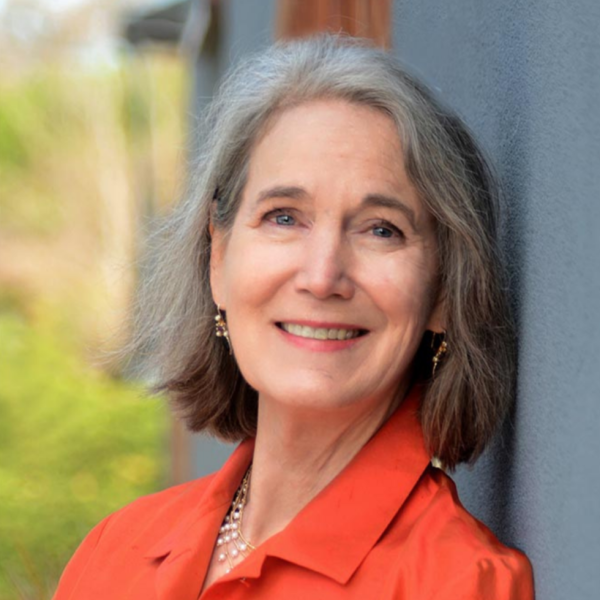Oakland is about to launch a new pilot program: Mobile Assistance Community Responders of Oakland (MACRO) designed to replace the Oakland Police Department’s response to non-violent emergencies and it is hiring people to serve as community intervention specialists and emergency medical technicians.
Instead of summoning an armed police officer when a 911 call is made for non violent situations, such as a drug overdose, or psychiatric services the MACRO team will respond with an Emergency Medical Technician (EMT) and a Community Intervention Specialist (CIS) both of whom are unarmed, and trained to de-escalate, mediate conflicts and provide social service support. This frees up the police from having to respond to thousands of such calls every year and enables them to focus on responding and investigating violent crimes.
MACRO is modeled on a long-standing program in Eugene, Oregon called CAHOOTS, which has received national recognition for diverting nearly twenty percent of the 911 calls to a medic/mental health team. This diversion saves the city millions of dollars and keeps mental health and public interventions outside of the criminal justice system.
The purpose of MACRO is to meet the needs of people in crisis with empathy, compassion and grounded in community. The goals are to reduce arrests and negative interactions with more access to community based services and resources.
In June of 2020, following the killing of George Floyd and nationwide protests against police brutality, the Oakland City Council voted to cut approximately $12 million from OPD’s budget and transfer 1.35 million to the MACRO project.
Originally intended to go to a community based organization, the Oakland Fire Department will run the MACRO program using the current 911 dispatch system. Both the Alliance for Community Wellness/La Familia Counseling Service, and Bay Area Community Services were contract contenders but pulled applications after city “politics” became difficult.
Elliott Jones, hired November 1, is MACRO’s first program director and was born and raised in Oakland. He is excited to be at the helm of this “innovative” program that is “Oakland centric” and involved so many partners including those in Oakland city council, the Oakland Police and Fire Department and to multiple community based organizations like the Anti Police Terror Project, The Citizen Coalition for Police Accountability, and Urban Strategies all of whom worked together to get MACRO to this launching point.
This July, Governor Newsom’s Budget Act of 2021 included 10 million dollars in additional funding for MACRO at the request of Vice Mayor Rebecca Kaplan and supported by Senator Nancy Skinner. Jones acknowledged MACRO is “comfortable” now with allocated city funds and state grant money, but that much of that money is kept in reserve.
Everything is under the Fire Department’s umbrella, commented Jones, but “we are responsible for our own fiscal dealings and the goal of sustainability.” Start up is the hardest and most expensive phase requiring equipment and staffing. Jones estimated an initial budget of about 5.6 million dollars, but stressed during this pilot phase they will begin to understand where the money will be used and how to allocate it appropriately.
MACRO is now only slated for communities in “deep” East Oakland and West Oakland, where there is “not only a great need, but a great opportunity to impact the community.” Jones is excited. “By no stretch of the imagination is this going to be an easy task, but a task worth doing should be a little hard.” To have a “scalable and sustainable model that can grow throughout Oakland” requires solid planning, data collection and fiscal responsibility Jones stressed.
If this pilot program is successful it will be scaled to other areas in Oakland with the goal of sustainability.
Jones anticipates a robust initial training that will be upwards of 200 to 250 hours. This training will be paid for new hires and provided by a variety of trainers. The goal is to ensure that crews are fully prepared to respond with the necessary empathy and compassion to build the relationships to foster community. He knows it won’t be easy. Some people who are most in need of services, will not be open to them, and there might not be enough community agencies to support the needs. But, “give me six months,” Jones enthused, and “I will have a data driven answer” to advocate for more beds, more counselors or other needed resources.
Jones encouraged our Peralta community to become involved and to apply for the MACRO team positions. He wants to hire a team of 15 new emergency medical technicians (EMT) and community intervention specialists (CIS) by January with the goal of beginning training in February. All would be Oakland City employees with a starting salary of approximately $65,000. He is also looking for Oakland residents to serve on the program’s advisory council and wants the community to have “a seat at the table.”
“I’m thrilled,” Jones said. Anyone, whether they or a family member have been involved with the justice system, experienced homelessness or had mental health issues – all are encouraged to apply and to sit at the table. “Email me,” Jones volunteered. “I’m here. I’m accessible.”
Elliott Jones, MACRO Program Manager,
Oakland Fire Department, EMS Division
Public Service, Empathy, Compassion & Community



























